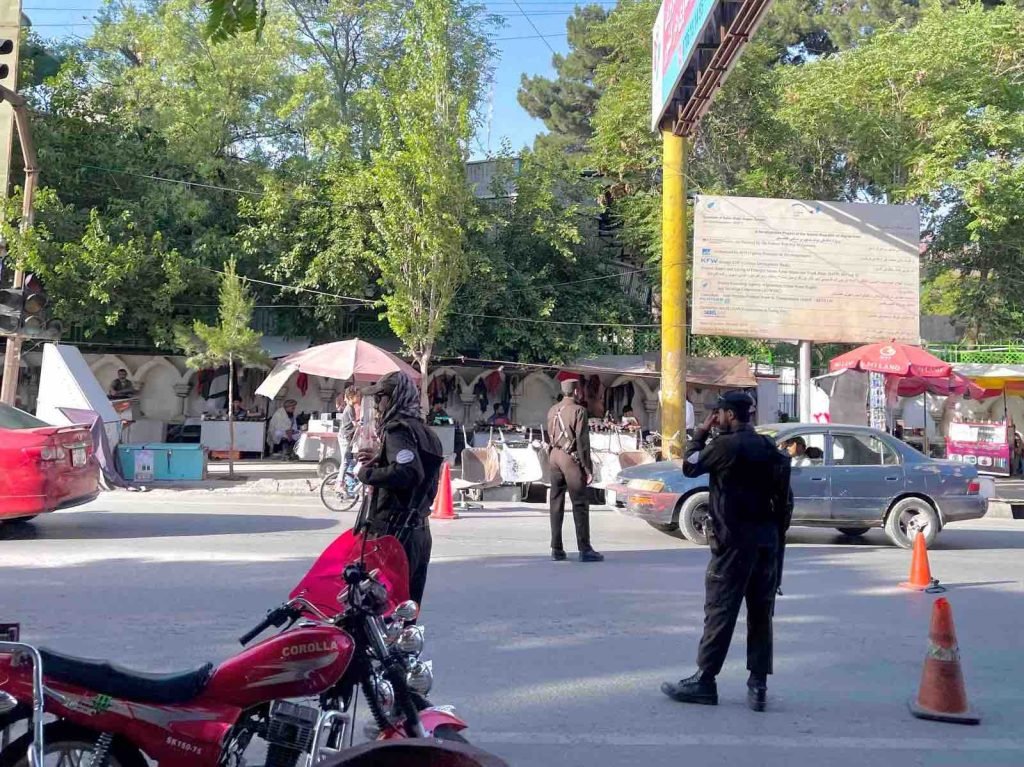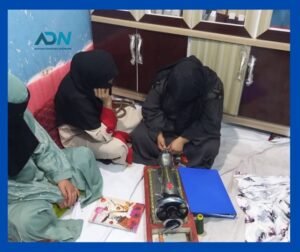Two Years of the Taliban Government: An Examination of Afghanistan’s Current Landscape

Kabul in July 2023 Photo: @AADIL
By Ilhamuddin Afghan
Afghanistan saw a significant transition on August 15, 2021, which marked a significant turning point in Afghan history. With the help of the US and the international community, the old system—which was based on a foundation of unlimited possibilities—broke down, allowing the Taliban to reclaim power for the second time. The takeover led to the establishment of a government consisting solely of Mullahs, Talibs, and those who had given them financial support throughout the 20-year battle.
The Taliban’s 20-year war against the previous government came to an end with Kabul’s capture, but it also sparked an unexpected change. Many were surprised by the city’s quick fall given the entrenched structure supported by 300,000 national security forces, recognition from other countries, a functioning judiciary, and a parliament. This system, which the constitution supported, safeguarded democracy, freedom of expression, human rights, party freedoms, and the rights of every social group.
The subsequent war that the Taliban started against NATO and Afghan forces further exacerbated losses for both sides. It is still unclear how the Taliban were able to quickly seize Afghanistan despite the significant loss of life and property and despite their failure to take individual provinces or districts. Analysts and observers frequently attribute this to the Doha Agreement, which the US and the Taliban reached and which allowed for the potential collapse of Afghanistan’s republican system while avoiding public scrutiny and debate. As a result, the Taliban’s takeover heralded significant changes in addition to a change in political power.
The loss of about 300,000 Afghan army and national security personnel in the wake of the Taliban’s comeback highlighted the security void that resulted. Unfortunately, the international community has once again turned a blind eye to Afghanistan’s situation. Given this context, it is appropriate to ask how Afghans are faring two years after the Taliban took power.
Taliban’s Struggle for Recognition
The Taliban’s ongoing policies and practices continue to be despised in the international community. No country has formally recognized the Taliban government as of yet. Despite assuming power, the Taliban are still regarded as a powerful organization, and recognition of their governance has not yet materialized.
Even Pakistan, a fervent Taliban supporter, has resisted giving the group official recognition. Recent disagreements between the two parties over the TTP, a rival organization in Pakistan, have surfaced. The TTP is allegedly supported by the Taliban, and it is claimed that it attacks Pakistan from Afghanistan.
Domestically, the majority of the population has opposed the Taliban’s actions. The Taliban’s actions, according to Afghans, go against their interests and aspirations. Particularly, the Taliban’s policies have come under harsh criticism for failing to take Afghan sentiment into account.
Taliban Rule: Challenges and Disconnects
Many people believe that the Taliban’s actions don’t reflect any sincere efforts to win over Afghans. The Taliban’s return, according to retired teacher Mohammad Jan, “marks the demise of Afghan social values, as they view everything through an extremist lens.” According to this statement, the Taliban see themselves as the only representatives of Islam and consider everyone else to be non-believers. Many believe that this strategy prevents any significant advancements or alignment with national interests.
The Taliban’s egregious restrictions, like their ban on women attending school and working in foreign or government institutions, further highlight the disconnect between their ideology and the aspirations of the Afghan people.
According to university professor Samiuddin, external forces who predict Afghanistan’s decline make the decisions limiting girls’ access to education and fundamental rights rather than the Taliban. This claim is based on worries that those who lack literacy may be unable to recognize what is best for their nation and may unintentionally support the enemies’ agenda.
Fundamental rights have been violated by the Taliban over the last two years. Many Afghans have been denied access to education, which is regarded as a universal human right, making it impossible for them to find employment or support their families. Particularly burdened are former government officials who are now compelled to live in seclusion and worry about the future of their children.
As a result, Afghanistan has to deal with challenging days and nights. Although the Taliban asserts to offer complete security, many Afghans believe this guarantee to be insufficient. Beyond physical security, a lack of social, economic, occupational, and mental security exacerbates unhappiness. Citizens are unable to openly discuss social issues because their ability to speak up for basic rights is restricted. Due to the Taliban’s continued secrecy regarding their operations, journalists are not permitted access to high-level meetings or information.
Afghanistan’s poverty levels have increased as a result, leaving workers to lament the lack of job opportunities and worry about the welfare of their kids. Afghans are coping with uncertainty as a result of the Taliban’s return, which has brought about a number of issues. In the midst of these struggles, the Taliban’s leadership is viewed as uncaring and unresponsive, which feeds the narrative that the Taliban holds Afghans hostage and won’t respect their rights as a responsible government.
Afghanistan has faced numerous difficulties during the past two years of Taliban rule. Despite their claims of security, the Taliban’s actions have not succeeded in securing broader stability and prosperity. Afghans long for a better future that takes into account their rights and aspirations, but they are still caught in a web of uncertainty and unhappiness.
Ilhamuddin Afghan is a university professor based in Afghanistan.
Note: The contents of the article are of sole responsibility of the author. Afghan Diaspora Network will not be responsible for any inaccurate or incorrect statement in the articles.






